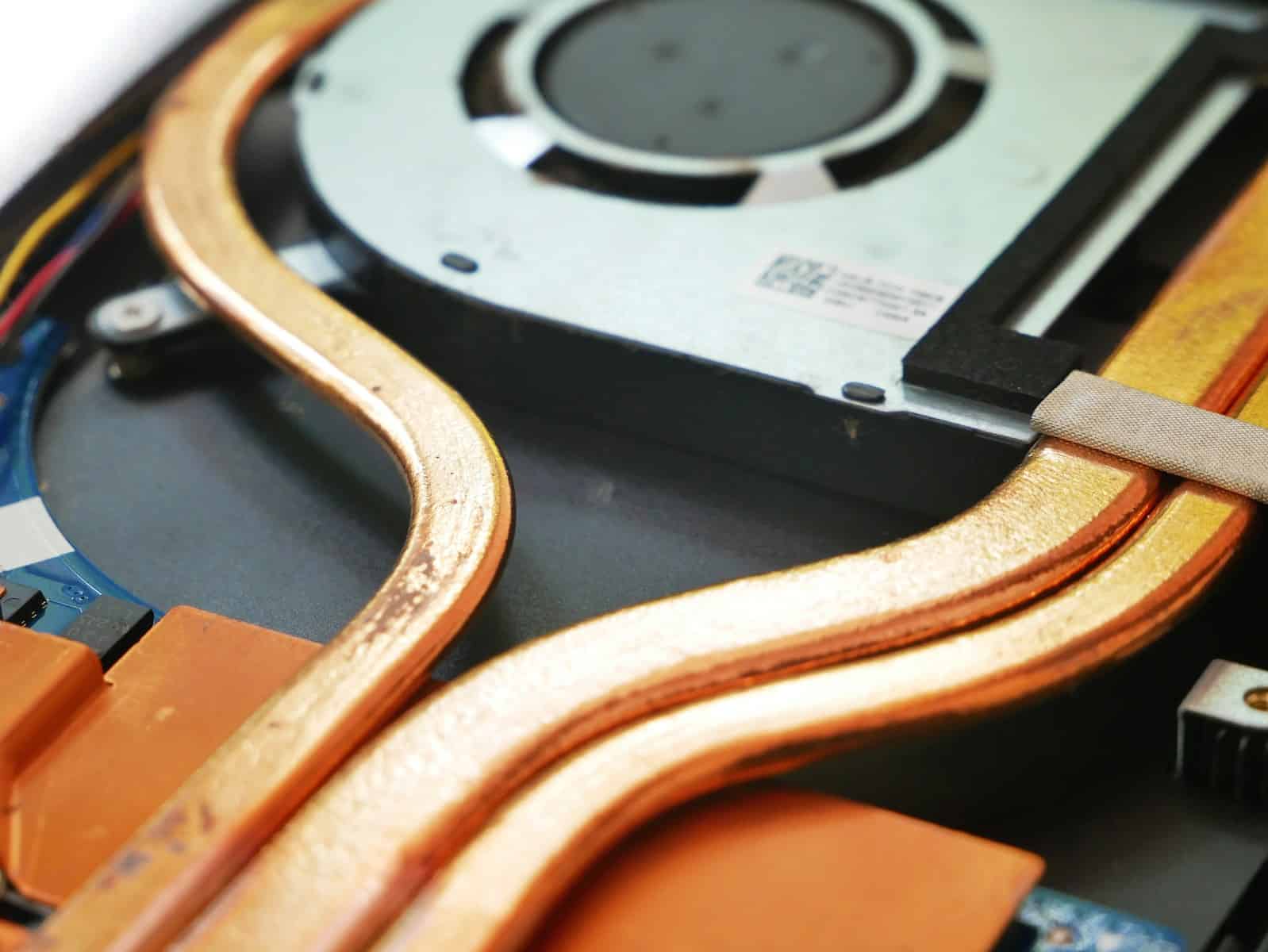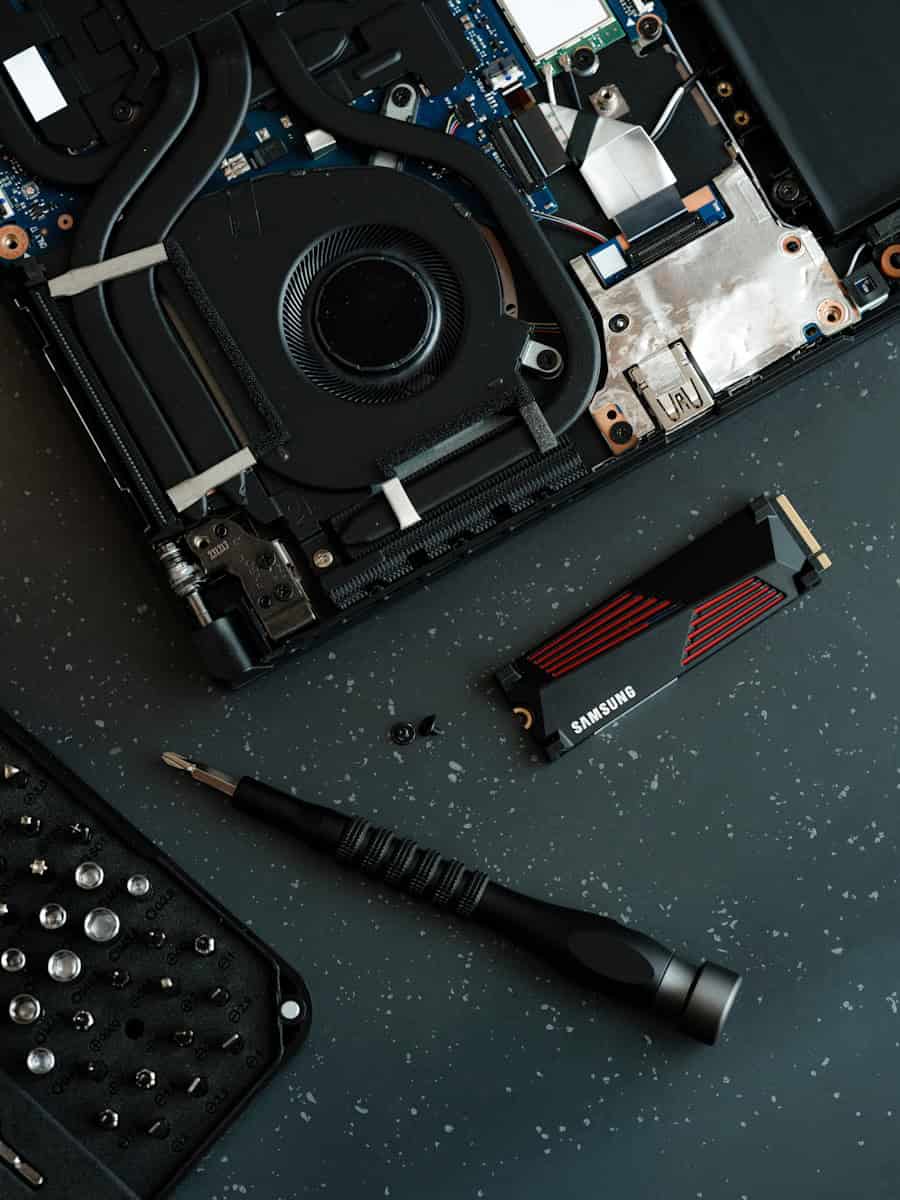Is your laptop fan making too much noise or not working at all? A noisy or malfunctioning laptop fan can be more than just an annoyance. It can signal underlying issues that impact your computer’s performance and lifespan. You can often resolve fan issues yourself by identifying the problem and taking the appropriate steps. However, if DIY troubleshooting fails, seek professional help to avoid further damage. A faulty fan can lead to overheating and hurt your laptop’s speed.
To fix a laptop fan, clean it, check for blocked vents, and update your drivers. These steps can often solve the problem and keep your laptop running cool and quiet. A loud fan often means your laptop is working too hard. This can be due to dust, blocked vents, or running too many programs at once. Sometimes, the fan itself may be broken and need to be replaced. But before you do that, try some simple fixes first. Keeping your laptop on a hard, flat surface can help air flow better. This lets the fan cool your laptop more easily. If that doesn’t work, you might need to clean the fan or check your laptop’s settings. With a little care, you can often get your fan working right again.

Cooling Down Your Laptop: A Guide to Fixing Fan Issues
Identifying the Problem
Before you jump to solutions, pinpoint the exact issue.
| Symptom | Possible Cause |
|---|---|
| Fan not spinning | Dust buildup, loose connection, or a faulty fan. |
| Loud fan noise | Dust buildup, overworked fan due to overheating, or a failing fan bearing. |
| Overheating | Dust buildup, blocked vents, demanding software, or a faulty cooling system. |
Troubleshooting Steps
Clean the Vents and Fan:

- Shut down your laptop.
- Use compressed air to blow dust out of the vents and fan. Be gentle and avoid spraying directly into the fan.
- If you’re comfortable, open your laptop’s back panel (check your manufacturer’s guide) and carefully clean the fan blades and internal components.
Check for Obstructions:
- Ensure your laptop is placed on a hard, flat surface, allowing for proper airflow.
- Avoid using it on soft surfaces like beds or couches, as they can block the vents.
Close Demanding Programs:
- If your laptop is overheating and the fan is running at full speed, check for resource-intensive programs running in the background. Close any unnecessary applications or browser tabs.
Update Drivers and BIOS:
- Outdated drivers or BIOS can sometimes cause fan issues. Check your manufacturer’s website for updates.
Reset the System Management Controller (SMC):
- On MacBooks, resetting the SMC can resolve power and fan-related problems. The process varies depending on the model, so refer to Apple’s instructions.

When to Seek Professional Help
If the problem persists, it’s time to consult a professional. A technician can diagnose hardware issues, replace faulty parts, or apply thermal paste to improve heat transfer.
Key Takeaways
- Clean your laptop fan and vents to improve cooling
- Update drivers and check settings to fix software-related fan issues
- Place your laptop on a hard surface for better airflow
Assessing and Resolving Hardware Issues
Laptop fan problems often stem from physical issues. Fixing these can restore proper cooling and extend your device’s life.
Clearing Dust and Debris
Dust buildup is a common cause of fan issues. Turn off and unplug your laptop. Use compressed air to blow out dust from vents and fans. Be gentle to avoid damaging fan blades. For thorough cleaning, open the laptop case. Remove dust from internal parts with a soft brush or cloth. Pay extra attention to the CPU and GPU areas. Clean the heat sink fins too. This helps heat move away from key parts.
Checking for Physical and Electrical Issues
Look for signs of damage on fans and vents. Check if fan blades spin freely. Listen for odd noises when the fan runs. These could mean worn bearings or other problems. Make sure power connections to fans are secure. Loose wires can cause fans to stop working. If a fan is broken, replace it with the right model for your laptop. Some laptops have more than one fan. Test each one to find the faulty unit.
Optimizing Cooling Systems and Environment
Apply new thermal paste between the CPU/GPU and heat sink. This helps transfer heat better. Make sure vents aren’t blocked when using your laptop. Keep it on a hard, flat surface for good air flow. Avoid soft surfaces like beds or couches. They can block air vents. Use a laptop cooling pad for extra airflow. This can help if your laptop often gets hot. Keep your work area cool. High room temps make your laptop work harder to stay cool.
Diagnosing and Mitigating Software Complications
Software issues can cause laptop fans to misbehave. Users should first check Task Manager to see if any programs are using too much CPU power.
Malware can also make fans run fast. A good antivirus scan can find and remove harmful programs.
Outdated drivers sometimes lead to fan problems. Users can update their device drivers through Windows Update or the manufacturer’s website.
Fan control software like SpeedFan lets users adjust fan speeds manually. This can help balance cooling and noise levels.
For Mac users, resetting the PRAM or SMC may fix fan issues. These are simple processes that don’t require opening the laptop.
Windows users should check their power plan settings. The “High performance” mode can make fans run more than needed.
Removing unnecessary startup programs can reduce system load and fan noise. Users can do this through Task Manager or the Startup folder.
If software fixes don’t work, the problem may be hardware-related. In this case, professional help might be needed.







